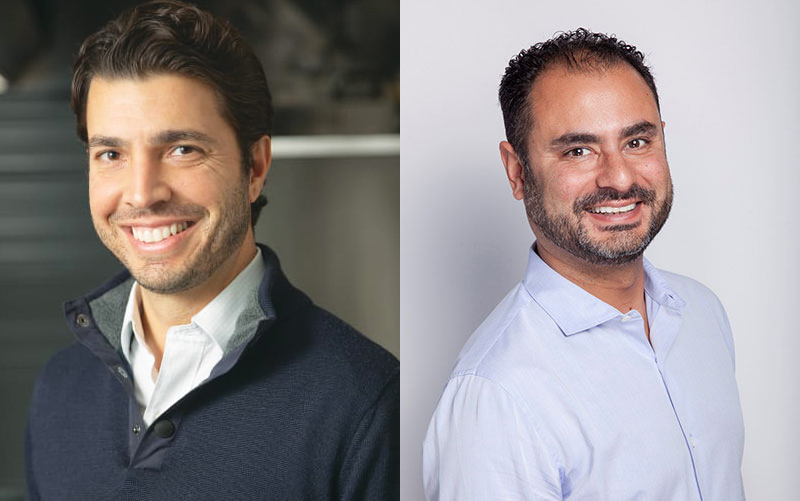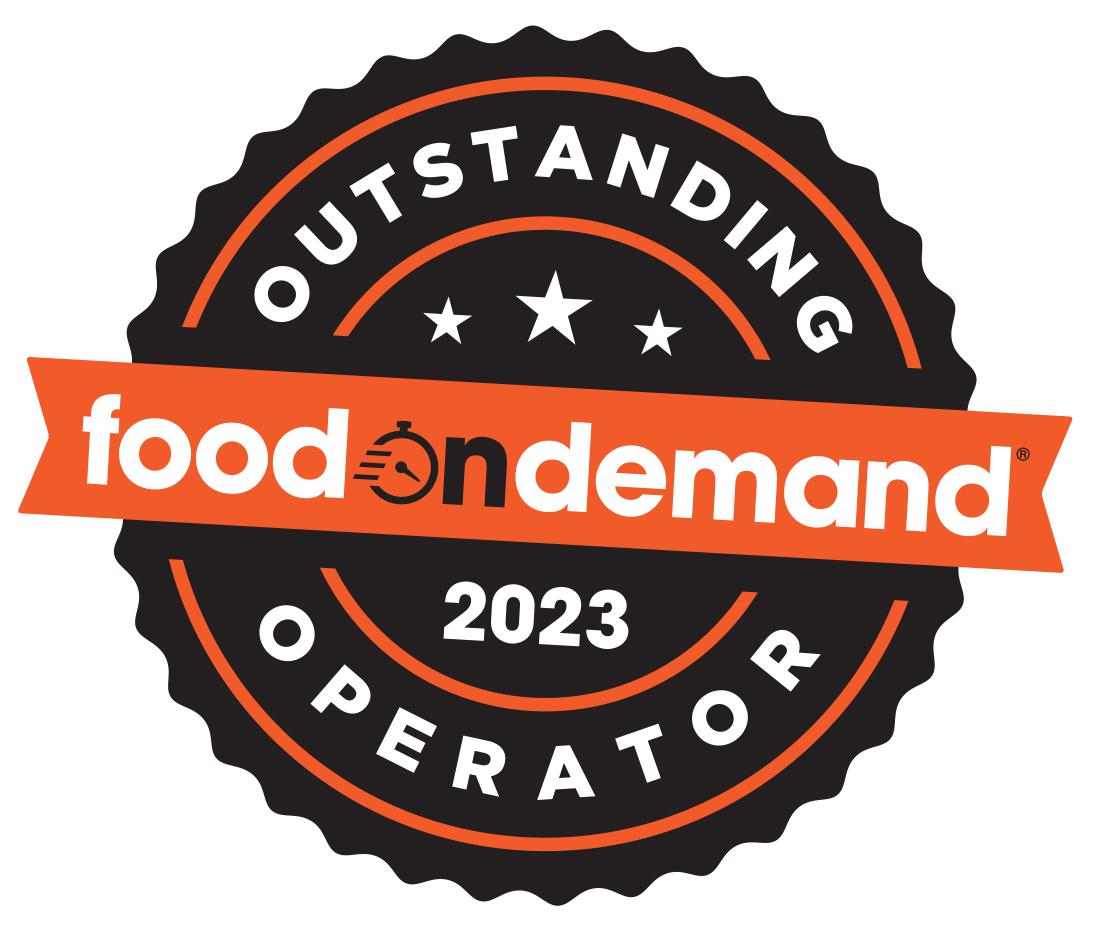Kitchen United raised $100 million and announced plans to grow from 15 to 500 locations in the coming years, partly with Circle K, a partnership that could rival its work with Kroger.
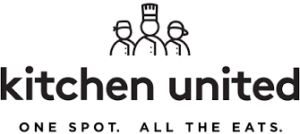 The Pasadena, California,-based ghost kitchen operator said it will also push into stadiums as part of its next phase. The funds, raised from a mix of new and existing investors, would go toward scaling. Kitchen United said the next phase wouldn’t require a significant expansion of staff, signaling a lean and scalable organization in a time when many restaurant technology companies are announcing layoffs.
The Pasadena, California,-based ghost kitchen operator said it will also push into stadiums as part of its next phase. The funds, raised from a mix of new and existing investors, would go toward scaling. Kitchen United said the next phase wouldn’t require a significant expansion of staff, signaling a lean and scalable organization in a time when many restaurant technology companies are announcing layoffs.
On completion of this Series C round, the company’s total fundraising has reached approximately $175 million. New investors include the parent company of Circle K, Kroger, Burger King parent Restaurant Brands International, B. Riley Venture Capital, Simon Property Group, Phillips Edison & Co, The HAVI Group. Existing investors also re-upped their support, including Google Ventures (GV), various funds managed by Fidelity Investments Canada, DivcoWest, Cali Group, GoldenArc Capital, General Global Capital and Rich Product Corporation.
Kitchen United cofounders Harry Tsao and John Miller, CEO Michael Montagano and two-time NFL Super Bowl MVP Peyton Manning also made significant investments in the round.
In an interview with Food On Demand, Montagano said his company’s latest raise cements his view that “slow and steady wins this race,” and stressed it’s especially significant that this financial support “came from people that are in the industry, that know it better than just about anybody else.” Those supporters include existing investors doubling down on Kitchen United’s future, but also newcomers like Burger King’s parent company following initial tests of the ghost kitchen space by the fifth largest U.S.-based franchise according to the Franchise Times Top 400.
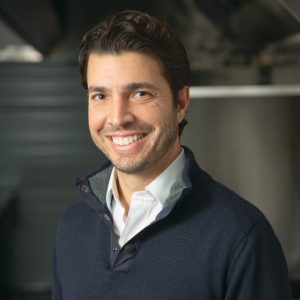
Kitchen United CEO Michael Montagano
This deal marks one of the largest investments in the restaurant category in recent years, and is especially notable as capital markets have constrained across the globe, causing many early-stage companies to reduce headcounts and accelerate efforts to reach profitability.
Montagano said the raise is an important validation of the company strategy around real estate, technology and a real ability to drive revenue to partners in various models.
“Sometimes it’s our own standalone facility, sometimes it’s in partnership with others, but the critical part is that location matters, the technology that powers those locations matter, and being able to drive volume to our restaurant partners,” said Montagano.
Kitchen United Chief Business Officer Atul Sood, who joined the company in 2017 after serving as director of business development, global digital at McDonald’s, said this latest milestone is surreal after helping the company raise its first half of a million dollars several years ago.
“Every time we finance the company, we’ve looked to get a reasonable valuation that is based on reality and not tried to overextend ourselves—and this time it’s the same,” he said. “We’ve also been, I would say, prudent and cautious about our growth. We haven’t just flung up new installations everywhere we can, we’ve really been testing things to see what works and how to make sure the sites are profitable.”
He added that, a few years ago, one could have argued that Kitchen United was falling behind Reef, which added units much quicker over the same interval, but Sood said playing the long game has ultimately been a blessing, “because now we have the roadmap to those hundreds, and we can do it confidently with secure backing.”
Sood stressed the company will be careful to grow methodically and “in a way that ensures the future health of the business” beyond the next 12- to 18-month period.
“We’ve always viewed this as a decades-long endeavor to really reshape and help nurture the restaurant industry,” he said.
Existing partners double down
Details about its new partnership with Circle K convenience stores remain scant, but the on-paper potential for Kitchen United is expansive. As the seventh-largest U.S.-based franchise, the company has more than 11,300 locations across the globe, mostly in North America and Europe.
While nobody has brought this vision to reality at scale, convenience stores may be a fertile field for the future of off-premises. Given the real estate, the traffic and access, they could become the delivery and electric vehicle charging hubs of the future. But Montagano said there’s a lot of work to get to that future.
“This is one where we can’t get in front of our skis, because Circle K has some big plans,” Montagano said. “I can tell you we are super excited about it, and we absolutely believe this has the potential to be as big as our partnership with Kroger.”
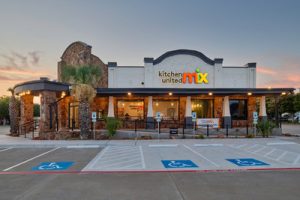
Kitchen United MIX in Frisco, Texas
Kevin Lewis, Chief Marketing Officer at Circle K parent Alimentation Couche-Tard said, “We see many commercial opportunities in partnering with Kitchen United as it prepares for considerable scale. We believe this business stands apart from other industry players with its centralized locations, multi-format offerings, experienced management team, and mature technology stack—all of which align with Circle K’s mission to make our customers’ lives a little easier every day as we work together to shape the future of convenience.”
Kitchen United’s next growth push will also include the stadium category, with Sood saying that is part of its “multi-format approach to ghost kitchens…that will yield a lot of innovative partnerships with partners both large and small.”
As Montagano and Sood prepared to board an airplane for New York City, where NASDAQ was preparing to display the investment on its seven-story tower in Times Square, the CEO said what he finds most heartening about this round is that every one of its investors has been a commercial partner with Kitchen United in some way over the years.
“Similar to how we’ve grown methodically as a business, whether it’s our team or our facility count, the same is with our investors,” said Montagano. “These are people who know the business, know the management team and know the value that we’re adding to their organizations, as well as others, and have chosen to double down.”

